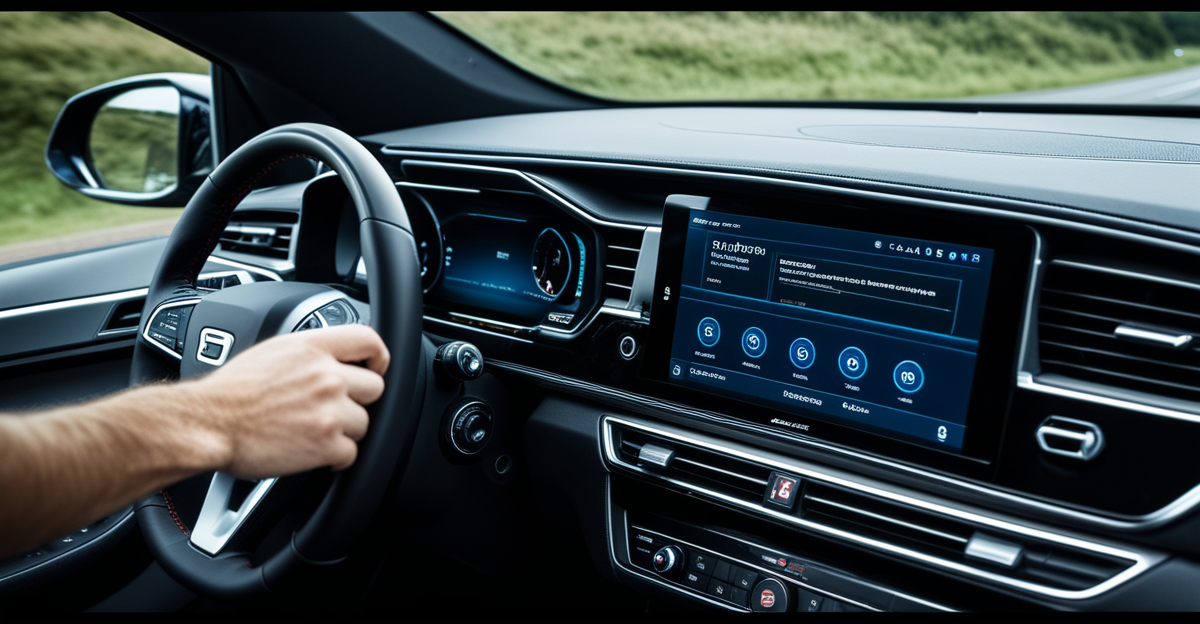Big data’s role in UK automotive innovation
Big data in the automotive industry UK is fundamentally reshaping how companies innovate. Data-driven automotive technology enables manufacturers to analyse vast amounts of information from production lines, vehicles, and customer interactions. This analysis drives improvements in design, efficiency, and safety.
Key trends include integrating real-time data streams to optimise vehicle performance and leveraging machine learning to predict maintenance needs before faults occur. Leading UK firms like Jaguar Land Rover and Bentley heavily invest in big data analytics to enhance their competitive edge. These companies use data to tailor vehicle features, offering more personalised and connected experiences for drivers.
Additional reading : What role do government policies play in the UK automotive market?
Innovation in this sector is not limited to manufacturing; it extends to autonomous driving and enhanced safety systems. UK automotive innovation thrives on partnerships between carmakers and tech firms that bring cutting-edge data analysis tools to life. The UK government’s support and robust data infrastructure further foster an environment ripe for data-driven breakthroughs.
In sum, big data acts as a catalyst, propelling the UK automotive industry toward smarter, safer, and more sustainable vehicles through continuous innovation and technological advancement.
In parallel : How Can New Technological Innovations Change the Future of the UK Automotive Industry?
Transforming manufacturing with big data
Big data analytics plays a pivotal role in automotive manufacturing innovation across UK car production. Leading manufacturers use these analytics to identify inefficiencies, optimise workflows, and reduce downtime. By integrating real-time data from sensors on production lines, companies can monitor equipment health continuously, enabling swift interventions before faults escalate. For example, advanced data-driven systems track material flow and assembly processes, improving overall factory throughput and quality control.
UK automotive plants increasingly rely on machine learning algorithms to predict bottlenecks and adjust operations dynamically. This digital transformation is not just about automation but smarter decision-making based on vast data inputs. The result is more agile production lines that quickly adapt to changing demands without compromising standards.
Outcomes from these initiatives include enhanced productivity, significant cost savings, and improved product consistency. Moreover, data-driven feedback loops support continuous improvement cycles, encouraging innovation at every stage of manufacturing. By harnessing big data analytics, UK car manufacturers strengthen their position in the global market while meeting stricter regulations and customer expectations efficiently.
Big data’s role in UK automotive innovation
Big data in automotive industry UK has become a powerful driver of innovation, reshaping how vehicles are designed, manufactured, and experienced. One key way this happens is through data-driven automotive technology that captures and analyses massive volumes of information—from sensor data in vehicles to customer usage patterns. This enables manufacturers to tailor innovations more precisely to market needs.
Recent trends show UK companies prioritising real-time analytics to enhance vehicle connectivity and performance. Machine learning algorithms play a growing role in predicting driver behaviour and optimising energy consumption, increasing efficiency and sustainability in new models.
Leading automotive firms such as Jaguar Land Rover and Bentley stand out for their commitment to integrating big data in all stages of the product lifecycle, from initial design to after-sales services. They utilise big data in automotive industry UK not just to innovate but to anticipate future mobility demands. Partnerships with technology firms accelerate this progress, ensuring that breakthroughs in data-driven automotive technology benefit both manufacturers and consumers alike. The combination of expertise and investment positions the UK as a hub for automotive innovation driven by data insights.
Big data’s role in UK automotive innovation
Big data in automotive industry UK is revolutionising the sector by enabling data-driven automotive technology that refines every stage of vehicle development. A key transformation lies in how companies collect and process vast datasets from vehicle sensors, customer feedback, and real-time performance metrics. This intelligence allows manufacturers to customise designs and features rapidly, aligning with evolving market demands.
Recent trends include advanced analytics to optimise fuel efficiency and reduce emissions through machine learning, boosting sustainability goals. Moreover, real-time data sharing between vehicles and cloud platforms enhances connectivity, paving the way for smarter, more responsive automotive systems.
Prominent UK players like Jaguar Land Rover and Bentley exemplify this innovation by embedding big data deeply into their R&D and production pipelines. Their investments in sophisticated big data in automotive industry UK tools enhance not only vehicle quality but also predictive models for maintenance and driver behaviour insights.
This strong commitment to integrating data analytics underpins the UK’s leadership in automotive innovation, offering consumers improved safety, performance, and personalised experiences through continuous data-driven advancements.
Big data’s role in UK automotive innovation
Big data in automotive industry UK is fundamentally transforming how vehicles are designed, manufactured, and experienced through data-driven automotive technology. Key innovations focus on harnessing vast datasets from sensors, customer feedback, and vehicle telematics, enabling more accurate product tailoring and smarter systems integration.
Recent trends emphasize leveraging real-time analytics and machine learning to boost fuel efficiency, optimise battery management in electric vehicles, and enhance connectivity features. These data-driven advances improve performance and sustainability, meeting evolving regulatory and consumer demands.
Leading UK automotive companies like Jaguar Land Rover, Bentley, and smaller tech-driven startups are pioneers in embedding big data in automotive industry UK at every stage—from R&D and production to after-sales services. They use advanced analytics not only to refine vehicle dynamics but also to develop predictive maintenance models and personalised driver experiences.
This broad adoption of data-driven automotive technology is accelerating innovation cycles and strengthening the UK’s global standing. By integrating extensive data sources and sophisticated analytics, UK manufacturers continue to push the boundaries of what modern vehicles can deliver in safety, efficiency, and user-centric features.
Big data’s role in UK automotive innovation
Big data in automotive industry UK is revolutionising the sector through data-driven automotive technology that accelerates innovation across design, performance, and connectivity. Key transformations stem from capturing and analysing vast datasets from vehicle sensors, customer feedback, and telematics systems. This data provides actionable insights that enable manufacturers to tailor vehicles more precisely to consumer needs and regulatory demands.
Recent trends highlight the integration of real-time analytics and machine learning models, which optimise fuel efficiency, enhance battery management in electric vehicles, and improve overall system responsiveness. These advances not only boost sustainability but also create smarter, more intuitive driving experiences.
Leading UK automotive companies, including Jaguar Land Rover and Bentley, exemplify innovation by deeply embedding big data in automotive industry UK within R&D, production, and after-sales services. They leverage advanced analytics for predictive maintenance, personalised features, and improving safety. Additionally, partnerships with tech firms continuously amplify their capability to innovate.
By harnessing big data effectively, UK manufacturers maintain competitive advantage while delivering highly customised and future-ready vehicles that set new standards in performance and user experience.





